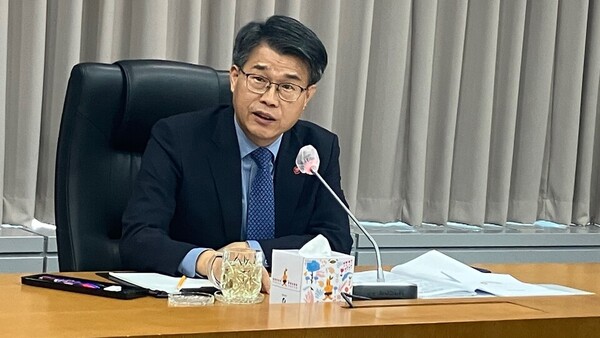The National Health Insurance Service (NHIS) said it would focus on the passage by the National Assembly of a bill granting "special judicial police rights" to the state health insurance agency.
It also plans to communicate with the medical community more actively to alleviate their concerns about expanded investigations.
“Investigations into illegal medical institutions have limitations due to prolonged probes, hiding of properties by illegal clinic operators, and fake transfers,” said Kim Nam-hoon, senior director of reimbursement at NHIS, during a meeting with journalists on Wednesday.

Lawmakers have proposed six related bills from both ruling and opposition parties in the incumbent 22nd National Assembly to grant the state health insurance agency to investigate illegal clinics armed with quasi-judicial authority.
NHIS has amended related laws 41 times, strengthening punishments for illegally opened institutions. It is also making various efforts to crack down on illegally opened institutions, such as disclosing information on delinquent institutions and expanding administrative investigations of suspected institutions.
However, the agency said there are limitations in its crackdown efforts.
Despite amendments to the law, including the restriction of departures by high defaulters and the seizure of imported goods by delinquent payers to expand the collection of ill-gotten gains from illegal establishments, the investigation of illegal establishments has been prolonged to about 11 months on average, and methods of illegal clinic operators, such as property concealment and fake transfers, are evolving.
The NHIS explained that by introducing the special judicial police act, the investigation period will be shortened from 11 to three months, and the investigation can focus on the illegal opening of hospitals owned by unlicensed people and license-lending pharmacies.
“Unlike the general police, the NHIS' special police will be able to focus its investigations on the illegal opening of hospitals and license-lending pharmacies. They can also make the most of NHIS’ medical and investigational expertise and healthcare big data to conduct quick and professional probes,” Kim said. “It will significantly prevent new entrants and voluntary exits of illegal medical institutions.”
As there are concerns with the medical community about the NHIS’ judicial authority, the agency will resolve them through continuous communication.
Lee Hwa-yeon, head of the post-investigation management department at the NHIS, said, “The medical community's biggest concern is the possible expansion of probes to unjustifiable claims. However, fraudulent claims are already being investigated by a separate law.”
“Investigative agencies cannot focus on a case because they have to conduct multiple investigations, but the introduction of special police can shorten (the investigation period) within three months because they can only investigate illegal organizations,” Lee said. “With the introduction of special police, they will be under the command of one prosecutor, so we expect that as they gain experience, the investigation period will be shortened, and the conviction rate will increase.”

